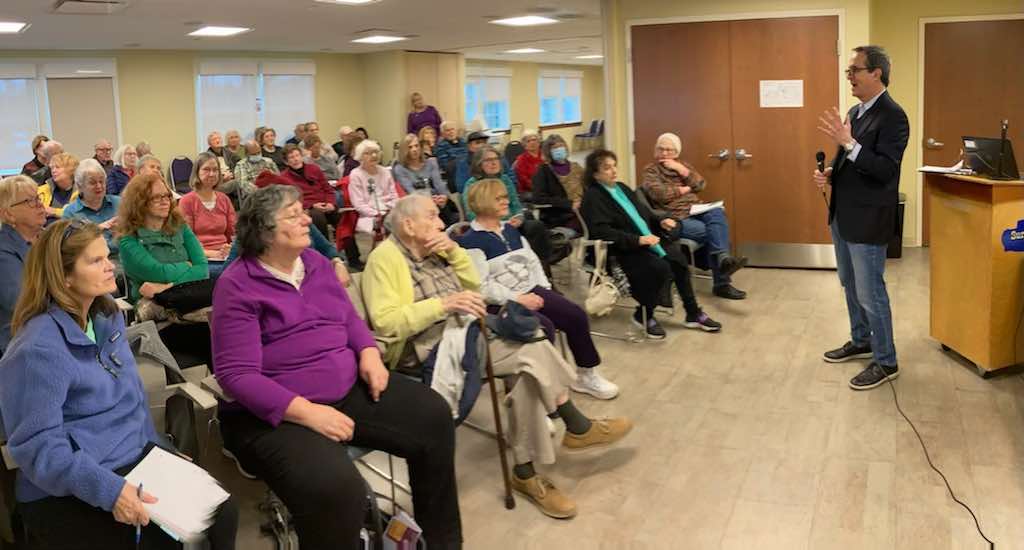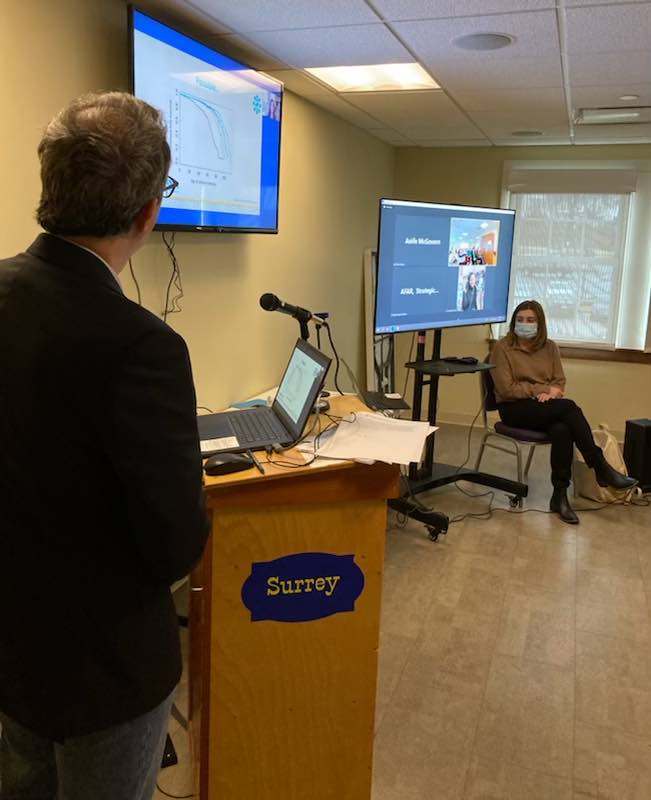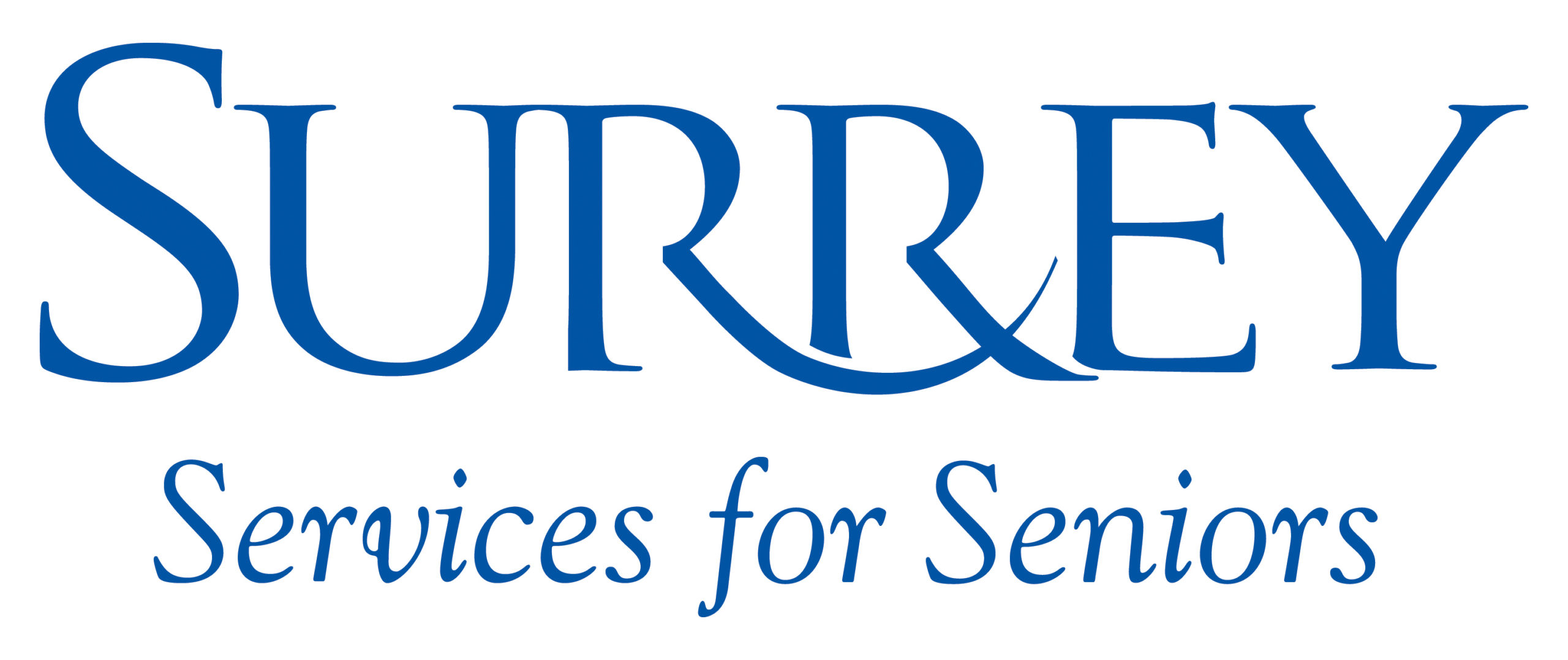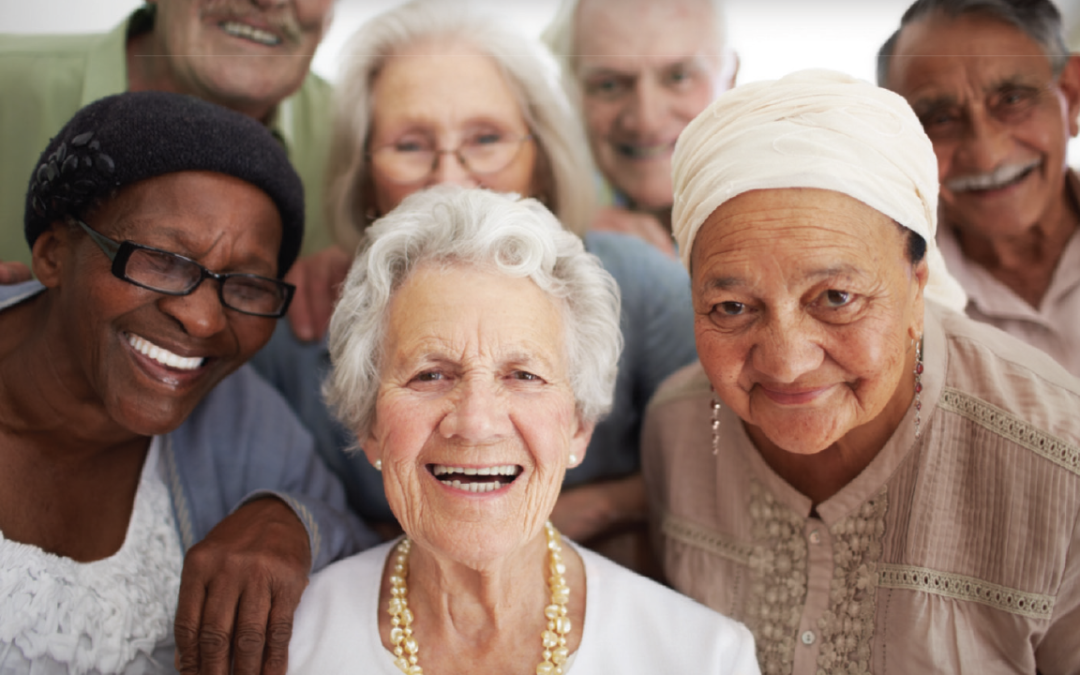Today, Surrey was honored to host a presentation about a groundbreaking new research project – The SuperAgers Family Study. The project is one of the most ambitious studies ever conducted to uncover and understand the genetic and biological mysteries of exceptional longevity and healthy aging.

The pathbreaking research project, called the SuperAgers Family Study, is the centerpiece of the larger SuperAgers Initiative, led by the American Federation for Aging Research (AFAR). The study is seeking assistance from as many as 10,000 people who have celebrated their 95th birthdays — as well as their children, many on course to become SuperAgers themselves.
“The SuperAgers Family study offers our oldest relatives, friends, colleagues, and their families a once-in-a-lifetime opportunity to learn more about themselves while benefiting the world of science for generations to come,” said Stephanie Lederman, executive director of the American Federation for Aging Research (AFAR). “By helping us figure out why some of us stay healthy for an exceptionally long number of years, they can help us unlock new insights into how to prevent and treat the diseases of aging.”
Scientists at the Albert Einstein College of Medicine are conducting the SuperAgers Family Study, in collaboration with Boston University’s School of Medicine. The Study and SuperAgers Initiative are funded through the generous support of James Fickle.

Why It Matters
Participants in the SuperAgers Family study will help researchers identify the inherited as well as natural factors that slow aging and protect against its related diseases — allowing many more of us to live much longer and healthier. (Today, just one in every thousand people in the United States is older than 95.)
This unique opportunity will allow SuperAger parents and their children to collaborate as “citizen scientists,” in a study that will benefit generations to come. That’s because the results will inform current and future teams working to prevent or treat age-related afflictions. And all the data collected will be preserved in a newly created “biobank” — a data library of information and biospecimens – which will assist decades of future research into healthy aging.
Family Study participants also have the option of receiving some ancestry information based on the genetic information, or DNA, they provide to the study.
How to Get Involved
Participating in the study is voluntary — there is no compensation — and the time commitment is brief: between one and three hours total.
The process begins with completing a health history, family history and demographic profile online at the study’s website. (Help is available 9 a.m. to 5 p.m. ET on weekdays by calling
(718) 839-7635 or emailing superagers@einsteinmed.edu.)
Study participants will receive a kit in the mail allowing them two options for providing a small saliva sample. The instructions are simple, and the process is user-friendly, non-invasive, and can be done at home. Participants then return the sample in a postage-paid envelope to the study leaders at Albert Einstein College of Medicine.
Participants can be assured that their privacy is well protected. Einstein will track each sample barcodes — not study participant names. Additionally, the biobank holding the DNA records will be protected and maintained in compliance with federal medical privacy law (HIPAA).

